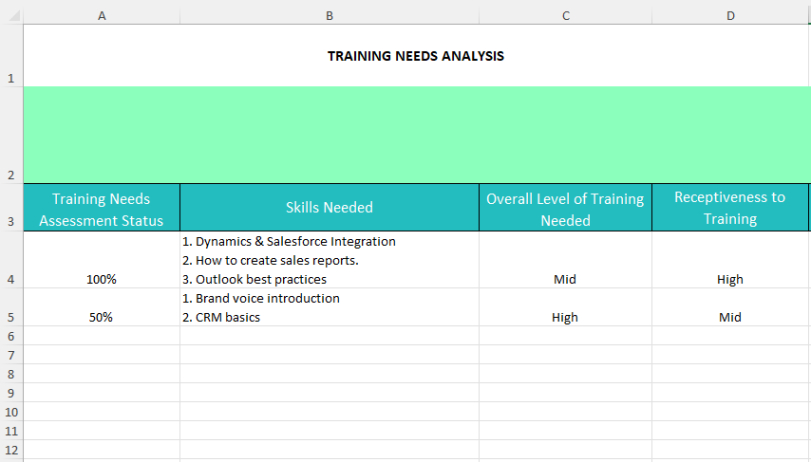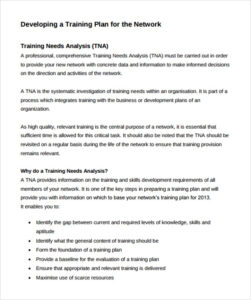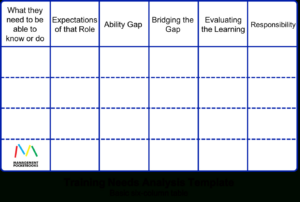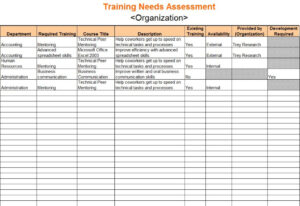Training needs analysis questionnaire template.A questionnaire template serves as a foundational tool for gathering useful information effectively and methodically. It is a organized structure made to direct participants with a collection of questions, ensuring that the accumulated information is relevant and accurate. Whether in research study, advertising and marketing, medical care, or education and learning, questionnaires have come to be crucial for understanding patterns, point of views, and behaviors. Crafting an reliable questionnaire template is not simply a matter of benefit but a crucial facet of making sure the success of any type of information collection initiative.
One of the key advantages of using a questionnaire template is its ability to standardize the information collection process. By maintaining uniformity in the method concerns are framed and presented, researchers can lessen predispositions and errors that could occur from varying layouts. This consistency makes sure that all participants analyze concerns similarly, causing similar and reputable data. Additionally, a well-structured theme decreases the moment and effort required for both developing and responding to the survey.
An additional essential advantage of survey templates is their ability to conserve time. Crafting a high-grade set of questions involves careful planning, wording, and format, which can be daunting, particularly for newbies. Themes supply a ready-to-use beginning point, enabling users to personalize inquiries to match their certain needs. By eliminating the requirement to produce a set of questions from square one, scientists can allocate even more time to assessing results and drawing purposeful verdicts.
Templates additionally use flexibility. They are available in different formats customized to different research study purposes, such as consumer complete satisfaction surveys, worker responses types, or academic study studies. Each design template includes certain sections and inquiry kinds created to attend to the unique needs of the topic. This adaptability makes design templates very useful tools for specialists throughout markets, guaranteeing they can gather information properly, regardless of their field.
In addition to flexibility, survey templates boost the top quality of the concerns. Improperly worded or uncertain inquiries can cause incorrect feedbacks and insufficient data. Themes commonly include pre-validated inquiry styles and action options, lowering the chance of complication amongst participants. For instance, templates might include Likert ranges, multiple-choice questions, or open-ended inquiries that have been evaluated for clearness and relevance.
The selection of inquiry kinds is one more important aspect when making a questionnaire template. Typical kinds include multiple-choice concerns, Likert scale things, and flexible inquiries. Each format has its staminas and serves various functions. For example, multiple-choice questions are optimal for gathering measurable information, while flexible inquiries enable participants to give in-depth, qualitative comments. A mix of question types can yield a well-rounded dataset.
Additionally, layouts add to much better information organization and evaluation. Numerous layouts are integrated with analytical devices that instantly put together and envision responses in graphes, charts, or tables. This automation streamlines the process of identifying patterns, patterns, and outliers, making it simpler for scientists to attract workable insights. Such features are especially valuable for companies looking for to make data-driven choices.
Using themes also promotes inclusivity. They are made with availability in mind, ensuring participants from diverse histories can easily comprehend and finish them. Features such as multilingual support, user-friendly formats, and clear instructions help engage a wider target market, resulting in extra representative data. This inclusivity is essential for study aiming to address societal or international problems.
Testing and fine-tuning a questionnaire template is an vital step prior to its full implementation. Pilot testing with a tiny group can determine potential concerns, such as vague instructions or excessively complex concerns. Comments from this stage allows for adjustments that boost the total effectiveness of the study. This repetitive process guarantees that the final template meets the wanted requirements of high quality and integrity.
To conclude, a properly designed questionnaire template is a powerful tool for gathering purposeful information. It systematizes the survey procedure, ensures clarity, and improves participant interaction. By focusing on the needs of the target market, balancing concern types, and leveraging electronic tools, organizations can produce design templates that not only yield exact understandings however likewise foster favorable respondent experiences. Eventually, the success of a set of questions relies on the consideration and accuracy bought its style.




